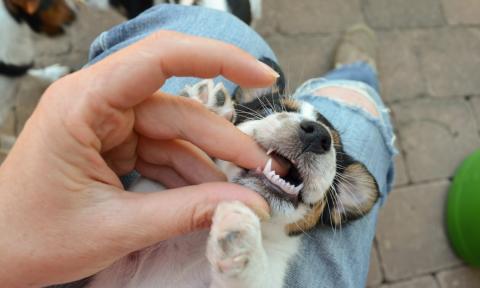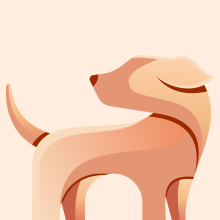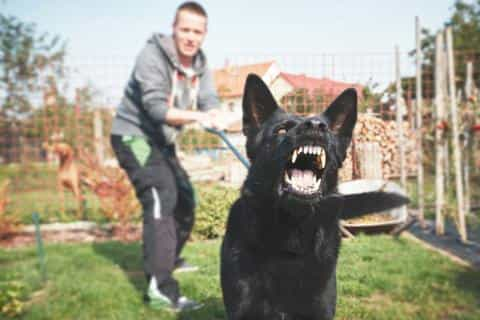
Published on February 18 by Julia
Puppy teething is a natural but sometimes challenging phase for both puppies and their owners. As puppies grow, they experience discomfort while their baby teeth fall out and their adult teeth come in. This usually happens between 3 to 6 months of age. If not managed properly, teething can lead to destructive chewing and discomfort for your furry friend. Here are some practical tips to help your puppy through this stage smoothly.
Chewing helps relieve the discomfort of teething. Offer a variety of safe, durable chew toys designed for teething puppies. Rubber toys, nylon bones, and soft fabric toys can be excellent choices. Avoid hard objects that could damage their developing teeth.
Cold items can soothe sore gums. Try freezing a wet washcloth, a rubber teething toy, or even a carrot. Ice cubes made from chicken broth or water can also provide a cooling effect and encourage hydration.
Puppies will instinctively chew whatever they can find, including furniture, shoes, and hands. Supervise them closely and redirect their attention to appropriate chew toys whenever they start gnawing on something they shouldn’t.

Safe, edible chews like bully sticks, frozen bananas, or specially formulated dental chews can provide relief. Ensure they are appropriate for your puppy’s size and chewing habits to avoid choking hazards.
Gently rubbing your puppy’s gums with a clean finger or a soft cloth can provide relief. Some pet stores also sell rubber finger brushes designed for massaging a puppy’s gums.
Start introducing dental care early by using puppy-safe toothpaste and a soft toothbrush. This helps prevent dental issues in the future and gets your puppy accustomed to regular oral care.
Never scold or punish your puppy for chewing. Instead, use positive reinforcement by rewarding them when they chew on appropriate items. Redirecting and rewarding good behavior will be more effective in the long run.

A tired puppy is less likely to engage in excessive chewing. Provide plenty of physical exercise, interactive play, and mental stimulation to keep your pup engaged and reduce the urge to chew out of boredom.
If your puppy seems to be in severe discomfort, has excessive drooling, bleeding gums, or refuses to eat, consult your vet. These could be signs of dental issues that require professional attention.
Puppy teething is temporary, and with the right approach, you can help your furry companion navigate this phase with ease. By offering appropriate chew toys, soothing remedies, and consistent training, you’ll set your puppy up for a lifetime of healthy chewing habits. Stay patient, and enjoy watching your puppy grow into a happy, well-adjusted dog!
Discover More Content





